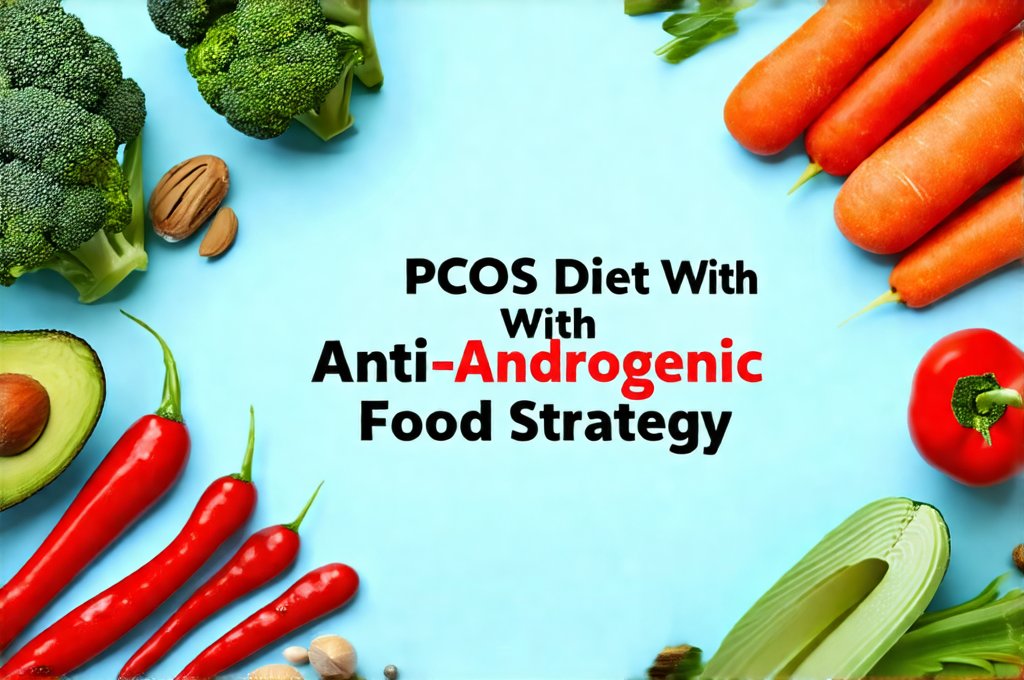Polycystic Ovary Syndrome (PCOS) affects millions worldwide, often presenting a complex web of hormonal imbalances leading to irregular periods, metabolic issues, and potential long-term health concerns. While there’s no ‘cure’ for PCOS, dietary interventions play a critical role in managing its symptoms and improving overall well-being. This isn’t about restrictive dieting or deprivation; it’s about nourishing your body with foods that support hormonal balance and address the underlying metabolic challenges often associated with the condition. Understanding how food impacts hormone levels is empowering, allowing individuals to take proactive steps towards better health.
The core of a PCOS diet revolves around stabilizing blood sugar, reducing inflammation, and mitigating hyperandrogenism – an excess of male hormones that drives many common PCOS symptoms like hirsutism (excess hair growth), acne, and irregular cycles. This means prioritizing whole, unprocessed foods and minimizing those that cause rapid glucose spikes or contribute to chronic inflammation. It’s also about recognizing the individual nature of PCOS; what works for one person might not work for another, necessitating a personalized approach guided by healthcare professionals. A strong focus on mindful eating and sustainable lifestyle changes is far more effective than fleeting diet trends.
The Anti-Androgenic Food Strategy
The term “anti-androgenic” doesn’t mean eliminating androgens entirely – they are essential hormones in the body for everyone, regardless of sex. Instead, it refers to incorporating foods that help regulate androgen levels and minimize their overproduction or impact. This strategy focuses on reducing factors that exacerbate hyperandrogenism while simultaneously supporting liver detoxification, which is crucial for hormone metabolism. Think of it as working with your body’s natural processes rather than fighting against them.
Many conventional dietary recommendations focus solely on calorie restriction, but this can actually worsen PCOS symptoms. Stress from restrictive diets elevates cortisol, which in turn impacts other hormones and potentially increases androgen production. The anti-androgenic approach prioritizes nutrient density over calorie counting, emphasizing foods that provide essential vitamins, minerals, and antioxidants to support hormonal health. This dietary style is about long-term sustainability and building a healthy relationship with food.
Crucially, it’s not just what you eat but also how you combine foods. Pairing carbohydrates with protein or healthy fats slows down glucose absorption, preventing rapid insulin spikes which can worsen androgen levels. Focusing on consistent meal timing throughout the day is similarly important for maintaining stable blood sugar and hormonal balance.
Prioritizing Low Glycemic Index (GI) Foods
The glycemic index measures how quickly a food raises blood glucose levels. High GI foods cause rapid spikes in insulin, which stimulates the ovaries to produce more androgens. Choosing low GI options helps stabilize blood sugar and reduce androgen production. This is perhaps the most foundational element of a PCOS diet.
- Examples of low GI foods include: non-starchy vegetables (broccoli, spinach, cauliflower), legumes (lentils, chickpeas, beans), whole grains (quinoa, brown rice, oats – in moderation), fruits with lower sugar content (berries, apples, pears).
- Avoid or limit high GI foods like: white bread, sugary drinks, processed cereals, potatoes (especially mashed), and excessive amounts of fruit juice.
- Consider the glycemic load as well, which takes into account both the GI and the amount of carbohydrates in a serving.
Incorporating fiber-rich foods is key to slowing down glucose absorption and promoting satiety. Fiber also supports gut health, which plays an increasingly recognized role in hormonal balance. A healthy gut microbiome can influence estrogen metabolism and reduce inflammation, further contributing to improved PCOS management.
The Role of Healthy Fats
Healthy fats are essential for hormone production and overall health, but the type of fat matters significantly. While many people associate low-fat diets with weight loss, they often inadvertently contribute to hormonal imbalances. Our bodies need fats to build hormones, including those crucial for regulating cycles and reducing androgen levels.
- Focus on incorporating sources of monounsaturated and polyunsaturated fats like: avocados, nuts (walnuts, almonds), seeds (chia, flaxseed), olive oil, fatty fish (salmon, mackerel).
- Limit saturated and trans fats found in processed foods, fried foods, and some animal products. These can contribute to inflammation and insulin resistance.
- Omega-3 fatty acids, particularly EPA and DHA found in fatty fish and flaxseeds, possess anti-inflammatory properties that may help improve insulin sensitivity and reduce androgen levels.
The liver uses fat to process hormones; therefore, adequate healthy fat intake supports efficient hormone metabolism. Avoiding overly restrictive fat diets allows the body to function optimally. Prioritizing quality fats is a cornerstone of the anti-androgenic approach.
Liver Support Through Diet
The liver plays a vital role in detoxifying excess hormones, including androgens. When the liver is overloaded or functioning suboptimally, it can struggle to effectively metabolize these hormones, leading to higher androgen levels and worsening PCOS symptoms. Supporting liver health through dietary choices is therefore an integral part of this strategy.
- Include foods that promote detoxification: cruciferous vegetables (broccoli, cauliflower, Brussels sprouts), garlic, onions, beets, turmeric.
- Minimize alcohol consumption as it places a significant burden on the liver.
- Stay adequately hydrated to support liver function and detoxification processes.
- Consider incorporating herbs like milk thistle (under the guidance of a healthcare professional) which have been traditionally used to support liver health.
Reducing exposure to environmental toxins can also ease the burden on the liver. Choose organic foods whenever possible, minimize use of harsh chemicals in cleaning products and personal care items, and ensure adequate ventilation in your home.
It’s crucial to remember that this information is for general knowledge and informational purposes only, and does not constitute medical advice. It is essential to consult with a qualified healthcare professional or registered dietitian for any health concerns or before making any decisions related to your health or treatment. They can provide personalized guidance based on your individual needs and circumstances.




